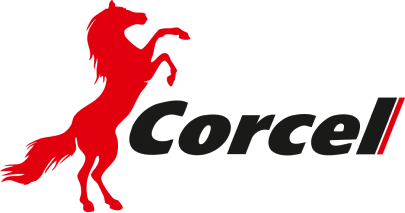Dangerous cargo
The transportation of dangerous goods requires a special approach and responsibility. Corcel, with many years of experience in this field, guarantees a high level of safety and professionalism. This text examines the key aspects related to the organization of such transportation.
1. What are dangerous goods?
Dangerous goods are materials or substances that may pose a risk to health, safety, property or the environment. They are classified into different categories depending on their potential danger, such as explosives, flammable liquids, radioactive materials, etc.2. Legislative framework
The transportation of dangerous goods is strictly regulated at the national and international levels. The legislation requires compliance with a number of rules and regulations, in particular:- Classification and marking of goods;
- Use of special containers and packaging;
- Organization of accompanying documents.
3. Logistics and transportation organization
Transportation of dangerous goods requires high qualification and specialized equipment. Corcel provides:- development of the optimal route;
- selection of the appropriate type of vehicle;
- availability of specially trained personnel.
Corcel services in the field of transportation of dangerous goods
- consultations on preparation of cargo for transportation;
- full execution of accompanying documentation;
- monitoring the condition of the cargo during transportation.
4. Safety first
Corcel pays special attention to ensuring safety during the transportation of dangerous goods. Safety precautions include:- Regular training of personnel;
- Using specialized sensors to monitor the condition of the cargo;
- Using modern technologies in the field of logistics and transportation.
5. Customer Reviews
Corcel customers highly appreciate the professionalism and responsible approach to the transportation of dangerous goods. Many note the high quality of service and the company’s ability to quickly resolve unpredictable situations.6. Certification and Quality Standards
Corcel complies with all international and national standards for the transportation of dangerous goods. The company’s certification includes:- ISO series 9000 and 14000, which confirms the compliance of quality management systems and environmental safety;
- ADR certificates (Agreement concerning the International Carriage of Dangerous Goods by Road), certifying the correctness and safety of transportation.
7. Technological support
Using advanced technologies allows Corcel to ensure maximum transportation safety. Innovative GPS monitoring systems, modern communication and control means allow tracking the condition of the cargo in real time, which is critical for hazardous materials.Examples of technological solutions from Corcel:
- Special software for calculating safe and efficient routes;
- Automatic detection systems for emergency situations that may arise during transportation.
8. Environmental responsibility
Transportation of hazardous goods has a great impact on the environment, so Corcel pays significant attention to the environmental aspects of its activities. The use of environmentally friendly technologies and materials helps to minimize the potential negative impact.Measures to reduce environmental impact:
- Regular eco-audits and equipment upgrades for more efficient and less polluting;
- Use of alternative fuels and energy-efficient vehicles.
Final Word
Choosing Corcel for the transportation of dangerous goods guarantees not only compliance with all safety standards, but also a responsible approach to every aspect of logistics. Thanks to modern technologies and a high level of professionalism of the company, your cargo will be delivered on time and in the best condition.Get consultation
Corcel specialists will answer all your questions regarding the movement of cargo or its registration, and will prove that international transportation is simple, to do this, fill out the form or contact us using our contacts:
